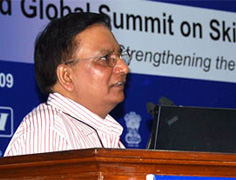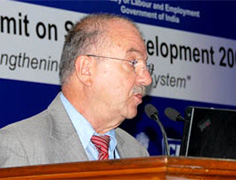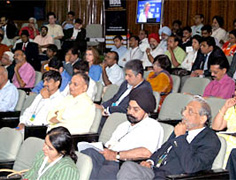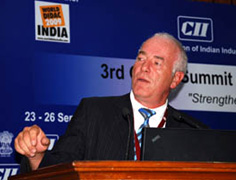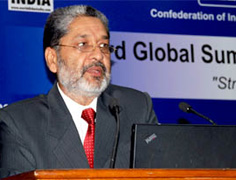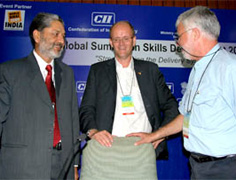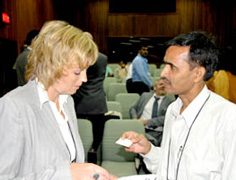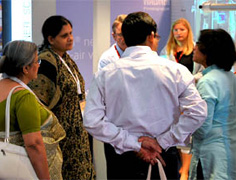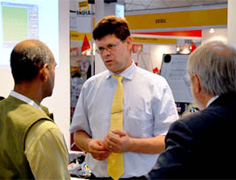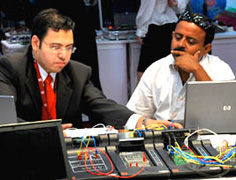The CII (Confederation of Indian Industries) Global Summit on Skills Development took place in September 2009.
iMOVE, the Federal Institute of Vocational Education and Training (BIBB) and Didacta, together with CII, organized the German involvement at the Global Summit, which enabled numerous education suppliers to present their portfolios in international professional forums.
The WORLDDIDAC INDIA exhibition took place for the first time ever, parallel to the CII Summit.
The beautifully designed German pavilion provided an effective and successful platform for 14 German companies from the education sector to dialogue with professionals, sales organizations and persons in positions of authority from schools, vocational training institutes and universities.
German-Indian Cooperation in Vocational Training Accelerates
Numerous activities over the course of the last two months within the framework of German-Indian cooperation, have advanced vocational training cooperation between the two countries significantly.
The inter-agency German-Indian Working Group for Vocational Education and Training took place at the beginning of September in Hamburg, as scheduled.
In August and September, the big Indian trade associations, the Federation of Indian Chambers of Commerce & Industry (FICCI) and the Confederation of Indian Industries (CII) invited us to attend their education summits, in order to participate in an exchange of ideas about Indian “national skills development strategies“ within the context of an international professional forum.
Germany was a partner country at both conferences and is seen as a desireable partner of the Indian Government for modernizing vocational training and education in the country.
Parallel to the CII Summit, the WORLDDIDAC INDIA exhibition took place for the first time.
The beautifully designed German pavilion offered an effective and successful platform for 14 German companies from the education sector to dialogue with professionals, sales organizations and persons in positions of authority from schools, vocational training institutes and universities.
Contrary to Germany, vocational training has a bad image in India. Furthermore, the country has not developed an infrastructure to support vocational training, which could provide an attractive alternative to an academic career for high school graduates.
India has ambitious goals in vocational training and education
What India appreciates most about the German system is contract-based, industry-related training, as well as the permeability of vocational development paths and the high quality of industrial production.
India is striving to adapt, and not to adopt, the German Dual Education System – a par for par transfer would not be successful – all of the professionals were in agreement on this point.
By 2020, India would like to have approximately 500 million qualified, skilled professionals so that its economy can become more competitive internationally.
Moreover, the Indian Government has made it clear that it will enable the "human dividend" of the country to cover future demands for qualified personnel in conventional developed countries with Indian men and women.
Future joint German-Indian activities will make a major contribution toward the advancement of the goals of the seventh largest country in the world and its more than one billion inhabitants.

.jpg)
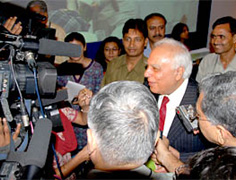

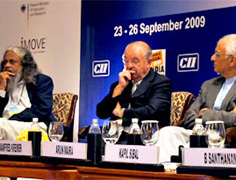
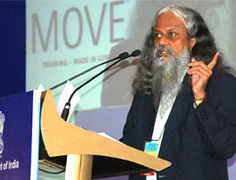
.jpg)
.jpg)
.jpg)
